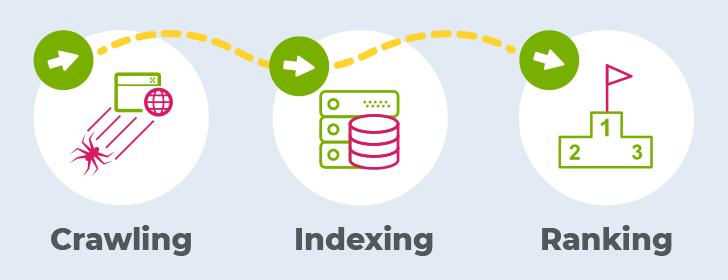In the digital age, search engines are among the most powerful tools we use daily. They help us find information, products, services, and answers to our questions with just a few keystrokes. But have you ever wondered what makes a search engine tick? How does it work, and why does it matter? In this comprehensive guide, we will explore what search engines are, how they function, and why they are crucial to navigating the modern web.
What is a Search Engine?
A search engine is a software system designed to search for information on the World Wide Web. When you enter a query into a search engine, it uses algorithms to sift through billions of web pages and provide you with a list of results that are most relevant to your query. Popular search engines include Google, Bing, Yahoo!, and DuckDuckGo.
Accessibility: They make the vast amount of information on the internet accessible. Efficiency: They save time by delivering relevant results quickly. Navigation: They help users find specific content, products, or services.
Search engines are essential for several reasons:
How Do Search Engines Work?
Search engines operate through a multi-step process that involves crawling, indexing, and ranking. Let is break down each of these components.
1. Crawling
Crawling is the process by which search engines discover new and updated web pages. Search engines use automated programs called spiders or bots to browse the web. These bots start from a set of known web pages and follow the links on those pages to discover new ones. Here how crawling works: Discovery: Spiders visit web pages, following links to other pages. Fetching: They download the content of these pages for processing. Following Links: Spiders continuously follow links on the pages they visit to discover new content. The goal of crawling is to ensure that the search engine database, or index, contains the most current information available on the web.
2. Indexing
Indexing is the process of storing and organizing the content collected by crawlers. After a page is crawled, its content is analyzed and indexed to make it searchable. Here what happens during indexing: Content Analysis: The content of the page, including text, images, and metadata, is analyzed to understand what the page is about. Index Creation: This information is then stored in a database, or index, that allows the search engine to retrieve it quickly when a user performs a search. Data Structuring: The index is organized in a way that enables efficient search and retrieval of information. The indexing process helps search engines quickly match user queries with relevant web pages.
3. Ranking
Ranking is the process of determining the order in which search results are presented to users. When a user submits a query, the search engine uses complex algorithms to evaluate and rank pages based on their relevance and quality. Factors influencing ranking include: Relevance: How closely the content of the page matches the users query. Quality: The overall quality of the content, including its accuracy, depth, and usefulness. Authority: The credibility of the website, often determined by the number and quality of other sites that link to it. User Experience: Factors such as page load speed, mobile-friendliness, and ease of navigation. Search engines continuously refine their algorithms to improve the accuracy and relevance of search results, aiming to provide users with the best possible experience.
Types of Search Engines
These search engines index a broad range of web content and are designed to answer general queries. Examples include:
Google: The most popular search engine, known for its sophisticated algorithms and extensive index. Bing: Microsofts search engine, which offers unique features like image search and integration with Microsoft services. Yahoo!: Once a leading search engine, Yahoo! now relies on Bing for its search results.
2. Specialized Search Engines
These search engines focus on specific types of content or industries. Examples include: Google Scholar: Provides access to scholarly articles, theses, books, and conference papers. PubMed: Specializes in life sciences and biomedical literature. Yelp: Focuses on reviews and recommendations for local businesses and services.
3. Meta-Search Engines
Meta-search engines aggregate results from multiple search engines to provide a broader range of results. Examples include: Dogpile: Combines results from Google, Yahoo!, and Bing. Startpage: Provides Google search results while maintaining user privacy.
4. Vertical Search Engines
These engines are designed to search within a specific vertical or industry. Examples include: Indeed: Focuses on job listings and employment opportunities. TripAdvisor: Specializes in travel, reviews, and recommendations.
The Importance of Search Engines
Search engines play a critical role in the modern digital ecosystem. Heres why they matter: 1. Information Access Search engines democratize access to information by making it easily searchable. Whether you are looking for academic research, news, or how-to guides, search engines provide a gateway to a wealth of knowledge. 2. Online Business and Marketing For businesses, search engines are crucial for visibility and marketing. Search Engine Optimization (SEO) and Search Engine Marketing (SEM) are strategies used to improve a website ranking and visibility in search results. High search engine rankings can lead to increased traffic, brand awareness, and revenue. 3. User Experience Search engines enhance user experience by quickly delivering relevant results. They help users find what they are looking for efficiently, saving time and effort. 4. Technological Innovation The development of search engine technology drives innovation in algorithms, data processing, and artificial intelligence. Search engines continuously evolve to meet user needs and improve the accuracy of search results.
Challenges and Considerations
While search engines offer numerous benefits, they also face several challenges and considerations: 1. Privacy Concerns Search engines collect vast amounts of data about users search behavior, raising privacy concerns. Many users are concerned about how their data is used and whether their search history is tracked. 2. Search Engine Bias Search engines can exhibit bias based on their algorithms, which may prioritize certain types of content or sources over others. This can impact the diversity of information presented to users. 3. SEO Manipulation The practice of optimizing content to rank higher in search results can sometimes lead to manipulative tactics, such as keyword stuffing or link schemes. Search engines continually update their algorithms to prevent such abuses and ensure high-quality results. 4. Digital Divide Not everyone has equal access to the internet or search engines. The digital divide can limit access to information and resources, particularly in underserved communities or regions with limited internet connectivity.






John
Informative article!